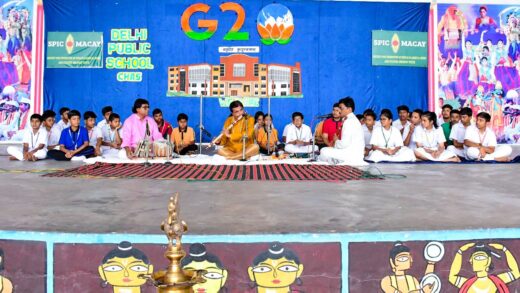Chintamani Nagesa Ramachandra Rao, also more popularly known as C N R Rao is currently the Head of the Scientific Advisory Council to the Prime Minister of India. Mr Rao has mainly worked in solid-state and structural chemistry. He holds honorary doctorates from over 60 universities. In 2014, he was conferred with the Bharat Ratna which is the highest civilian award in our country. He is the third scientist after Sir C V Raman and former President A P J Abdul Kalam to be bestowed this honour.

Dr. CNR Rao, born in Bangalore was a child prodigy. He was an only child and was home tutored by his mother till he was 6 years old. Dr. CNR Rao directly entered the middle class where he was the youngest in the class but it did not prevent him from teaching his classmates. Dr. Rao passed his lower secondary exam when he was 10 years old and as a reward, his father gave him 4 annas. He finished SSLC in another three years. At 17, he obtained a bachelor’s degree with a first-class. Dr. Rao went on to obtain a master’s in Chemistry from the BHU at the age of 19. He did his Ph.D. from Purdue University. True to form he completed his Ph.D. in less than 3 years!
In 1954, his first research paper was published in the Agra University Journal of Research. In this exclusive interview with The Indi Times, Dr. Rao walks us through memory lane including an incident where he met Sir C V Raman as an eleven-year-old. He also explains the lessons from life, the challenges faced by today’s children and society, and how they can be overcome.
Indi: You have achieved so much in your life. Are you contented?
I have had the opportunity to carry out teaching and research in chemistry and advance materials for many years. I am extremely happy about this and I must say I am satisfied with what I have done. In science and in many other areas, there is no limit to excellence. So, one keeps on trying to improve further. I considered scientific research is one that has a limitless ladder of excellence. I am still climbing.
Indi: Whom or what do you attribute your success to?
Well whatever little success I have had, is mainly because of my deep interest in doing something in my subject and also publishing as many good papers as possible, comparable to the best in the world. I have been inspired by people like Michael Faraday who always felt that publishing good papers is very important. I still keep publishing at the age of 81.
Indi: Have you had any setbacks in your life? How did you overcome it?
Life has ups and downs, but one has to take them as they come and continue to work in the areas of where one has a passion to accomplish something. One should not allow problems in life to interfere with one’s major interests.
Indi: An incident about your school days that you relish
From my school days, one of the things I particularly remember is my meeting Prof. C.V. Raman. I was 11 years old. He had asked two or three of the students to visit him in his laboratory at Indian Institute of Science. This was in the year 1945. I still remember spending almost an hour with Prof. Raman in his laboratory. It made a big impression on me.
Indi: What do you think are the challenges faced by the children of today?
Today’s children have many challenges. First of all, we have confused the children. They have to take too many exams and they have got too many pressures from society and parents. The society and parents want them to study a particular subject whether they are interested in it or not. For example in Bangalore, parents push children generally to take up engineering or medicine.
It is unfortunate that a country of this size has to have a situation where we do not allow children to pursue what they like. This country requires poets, philosophers, economists as well as scientist and engineers. I feel that children should be able to pick what they want and excel in those areas.
Indi: If you were to give a tribute to your favourite teacher…
I still remember my wonderful teachers in high school. Some of them would show demonstrations in class and even allowed me to do one or two small experiments. I was inspired by my school teachers in science.
Indi: If you had an opportunity to start your life again, what path would you choose?
If I have to live all over again, I would still be a scientist. I have enjoyed being a scientist. I would not like any change in my profession. What has been lucky for me is that I chose this. When I started my independent career as a scientist, as a member of the faculty at the Indian Institute of Science in 1959. I decided to take up a new area where there were very few people working. Taking the lonely road has been of great benefit. Today, this subject has become a mainstream subject and I am considered to be one of the grandfathers of this area.
Indi: If you had an opportunity to change one thing about our country, what would it be?
There are many things that we have to change in the country but the most important of all according to me is that our society should change its value system where it respects scholarship and education more than other things. Education and science do not figure in the value system of our society today.
Indi: What is your plan for the future?
My plan for the future is to continue to work in science as long as I can, if possible till the last day. This is the only prayer I have.
Indi: How much time do you devote yourself?
I spend many hours working in the laboratory and thinking about my work. One thing about one’s passion in science is that even though one is not actually working or writing at a given time, the undercurrent is always related to something one is interested in. I even now keep coining sentences and phrases in my dreams for a paper that I would be writing.



